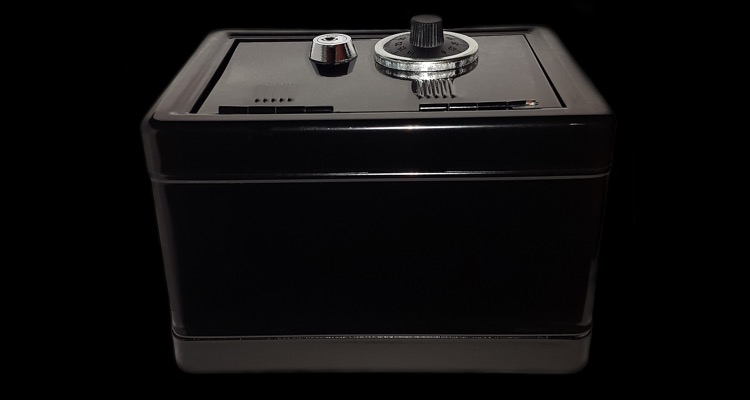Investors are continuing to pile into music publishing catalogs for a more reliable return. But publishing assets come with their own portfolio of headaches — according to these investors who are actively dealing with them.
What? You’re not subscribed to the Digital Music News Podcast? We’re available on iTunes, Spotify, Google Play, Stitcher, and pretty much everywhere else. Or, simply listen to the embed below.
We’ve written extensively about the music industry’s notorious ‘black box,’ which refers to billions in royalties that remain unrecoverable. Now, investors are finding out just how difficult royalty recovery can be, even with partners like Kobalt, Paradise Distribution, and Exactuals.
Sadly, if you’re the owner of a substantial publishing catalog, you’re probably also the owner of a major headache involving data recognition, messy accounting, fraud, and lost revenues.
But how bad is this problem?
In our latest Digital Music News Podcast, recorded in Hamburg, Germany, I touched upon this issue with two European investors actively invested in music publishing. They had 99 problems — at least.
“The problem is to get the money back from the different collection agencies, and it’s a nightmare,” said Thierry Baujard, founder of Europe-focused media investment firm Mediadeals.
“We’re losing a lot of money from errors and mistakes. People don’t understand the titles, and it’s lost in Latin America and other places.”
Baujard was honest with me. Getting paid on publishing is a lot harder than he imagined.
“So that’s a big problem. So we have quite a big publishing company now specialized in film music, and to get the money back is taking much more time than we thought. We see that there are many mistakes.”
But not just time — it costs a lot of money to recover your money.
“The problem of course is the cost the we have to spend, the level we have to spend [to recover payments] — the money coming back is quite small. So to pay someone to do it — we already have a company taking a commission of 30% — I guess we have to go with that, but it’s very, very expensive.”
I asked Thierry what the solution to this mess was. He answered with one word: lawyers.
“At the moment, the best solution we have is lawyers,” Baujard told me. “It’s a bit sad… it’s obviously very sad and takes a lot of time and money as well.”
Baujard told me he’s actually working with two legal teams, and has to personally send attorneys to various PROs to make claims. He’s also hired a company that scans every TV station in the world, then compares all of that data against the statements coming back from the PROs.
The results are pretty depressing.
“On two films, for example, there were a lot of differences,” Baujard said. “We know this film has been shown on 25 channels, and the collection agency shows it was on 5 channels. So the question of course is whether the other 20 channels will come in the next 6 months or not.”
“Probably not,” I said.
Oke Goettlich, head of Göttlich GmbH, pointed to a desperate need for technological solutions.
“I’m invested in a publishing company,” Goettlich relayed.
“There are challenges which are not solved by the old industry, and you need to have this new technology set up — digital data interfaces, and even collecting information on which songs were performed and where.”
I thought that was the job of the PROs like GEMA, SACEM, and ASCAP. But it’s not quite working that way.
“Many PROs are collecting money and distributing it to the well-known artists, but not the ones that are actually played. It’s completely unbearable that the PROs who are spreading most of the money in this whole game, are not able to track exactly where this money belongs.”
Goettlich has been grappling with rights issues for a long time. He started bootstrapping German-based distributor Finetunes more than a decade ago, and recently sold the company to The Orchard.
Here’s our podcast, which focuses more broadly on the issues that investors face with music startups and investments.
(You can check out the Digital Music News podcast pretty much everywhere, including iTunes, Spotify, Google Play, Stitcher, or simply listen to the embed below).



In my experience with writers signed to publishers, much of this inability to collect revenue is self-inflicted. I’ve had experiences with publishers inputting incorrect writer percentages into their systems, failing to invoice vendors for synchs, failing to collect from vendors on synch fees, failing to accurately report revenue that was received, and flat out losing checks that were sent to them.
It sounds like your podcast is focusing on TV and film royalties in foreign countries. I know there is a lot of corruption at PROs worldwide, but it’s a publisher’s responsibility to have boots on the ground in each territory comprised of knowledgable and connected individuals in those countries to find and collect the monies owed.
There are companies that do it better than others (Wixen Music comes to mind). Publishing is the most complicated sector of the music business and the least sexy. Investing not only in software but also human expertise and intelligence is the key to collecting all the revenue out there. From what I’ve seen over the years, most publishers are lacking in both.
Welcome
Nowadays it is so difficult to remain adequate.
So I want to ask, dear, how long will we endure all this.
Never such a thing and here again.
It’s amazing to pay a quick visit this web site and reading the views of all colleagues regarding this paragraph, while I am also keen of getting experience.
chauj.imwmalt.be
kemtrinamhvqy